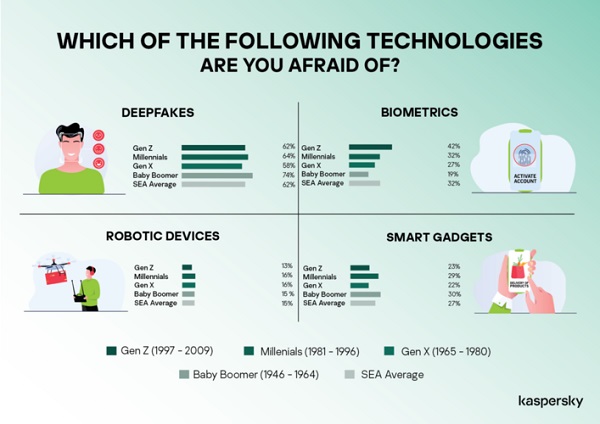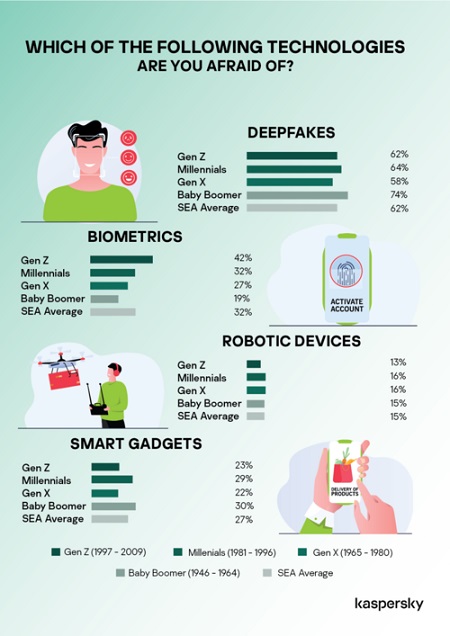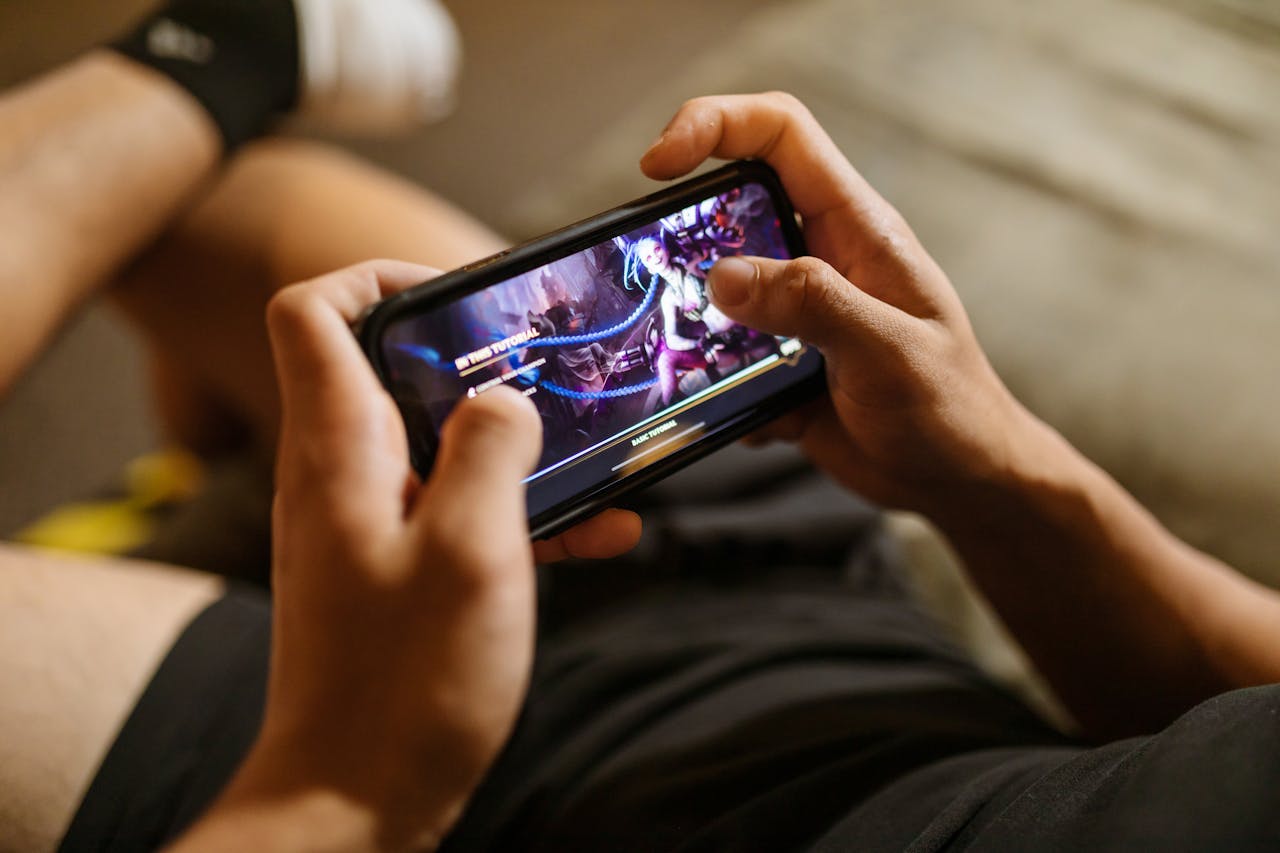
Gen Z and Gen X in Southeast Asia (SEA) are less afraid about future technologies such as biometrics, smart appliances, robotic devices and deepfakes while millennials and boomers have their guards up.
These are some key findings from cyber security firm Kaspersky’s research titled “Making Sense of Our Place in the Digital Reputation Economy” conducted in November 2020.
The study surveyed 831 social media users in SEA about their level of fear against the current technological trends and found out that more than half (62%) of the respondents are afraid of deepfakes. It is highest among Baby Boomers (74%) and lowest among Gen X (58%).
Deepfakes use artificial intelligence to create images, audio, or voice recordings in someone else’s likeness. The respondents’ attitude towards this technology is not without basis as deepfake videos have been used for political purposes, as well as for personal revenge. Increasingly, they are also being used in major attempts at blackmail and fraud.

SEA respondents are less but still guarded about biometrics or the use fingerprint, eye scanner, and facial recognition (32%), smart devices (27%), and robotic tools like a robot cleaner (15%).
The social media users in the region have valid reasons to fear the up and coming technologies as the study also unmasked their negative experiences online.
Most common incident faced by more than 3-in-10 respondents was an account takeover wherein someone got access to their accounts without their permission.
More than a quarter (29%) also have some secret information seen by someone they would not want to see.
Over 2-in-10 also shared that someone got access to their devices forcibly (28%), their private information was either stolen or used without consent (24%) or was seen publicly (23%).
Aftermaths of these incidents include receiving spam and adverts (43%), stress (29%), causing embarrassment or offense (17%), reputational damage (15%), and monetary loss (14%).

“Our survey proves that unfortunate incidents can happen online and such have real-life repercussions. Technologies are meant to evolve for the greater good, however, there are always learning curves where some amount of fear with action will be vital,” said Kaspersky managing director for Asia Pacific, Chris Connell.
However, the same research revealed that there are still almost 2-in-10 users in the region who believe that internet security software is not required to protect their online lives. This perception is highest with Gen Z (17%), followed by Millennials (16%). There were both 15% of Gen X and Baby Boomers who also deem these solutions unnecessary.
“This is a cause of concern as we, humans, are prone to making errors from time to time and such solutions are meant to be our safety nets. While there is no silver bullet when it comes to cybersecurity, it is still important to have basic defenses in place. Business owners should particularly look into this as their IT infrastructure continues to flow from their safer enterprise networks to the more vulnerable individual houses,” added Connell.
The Covid-19 has caused an overnight remote working revolution, bringing with it new cyber-challenges for IT teams.










